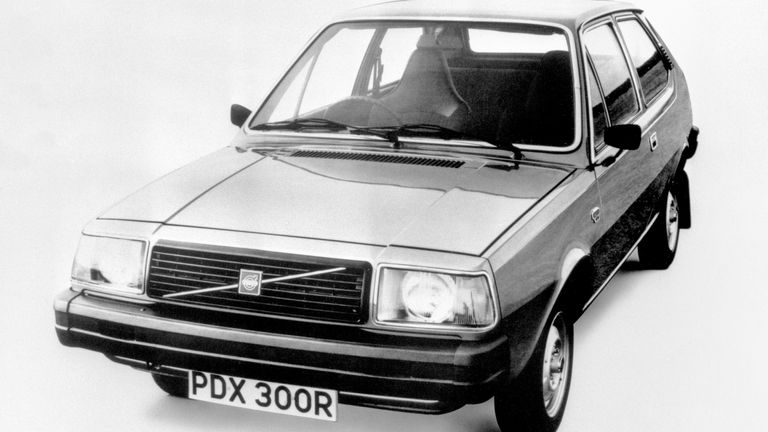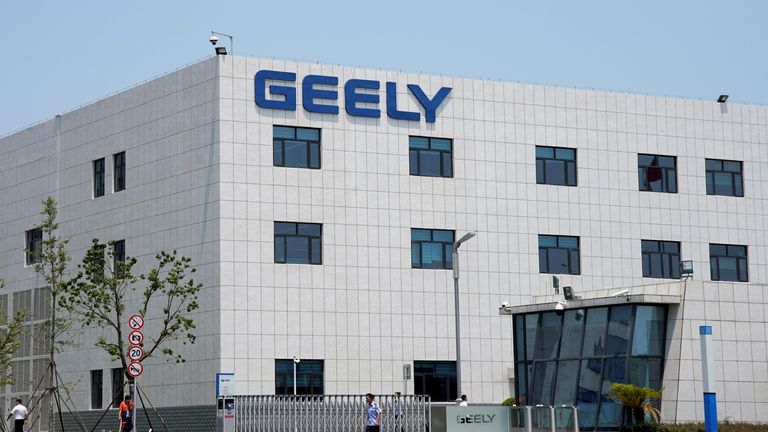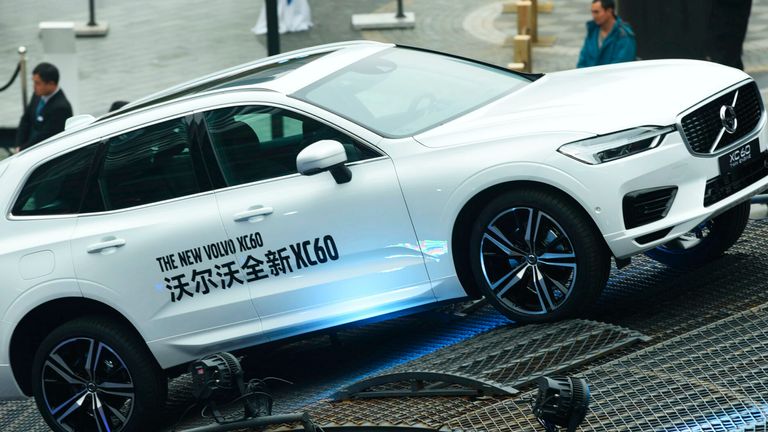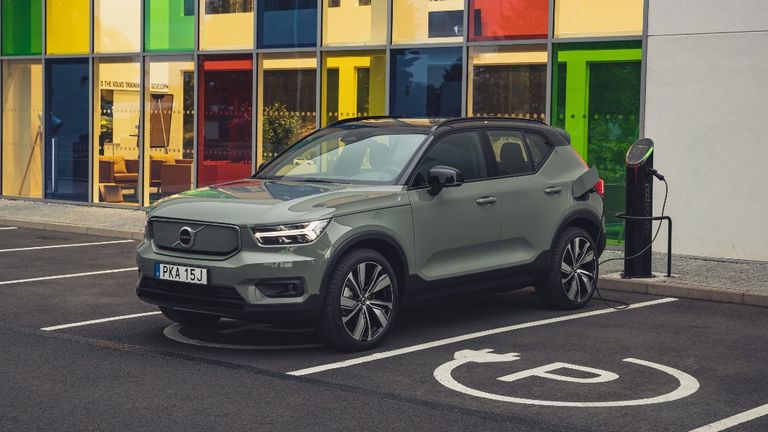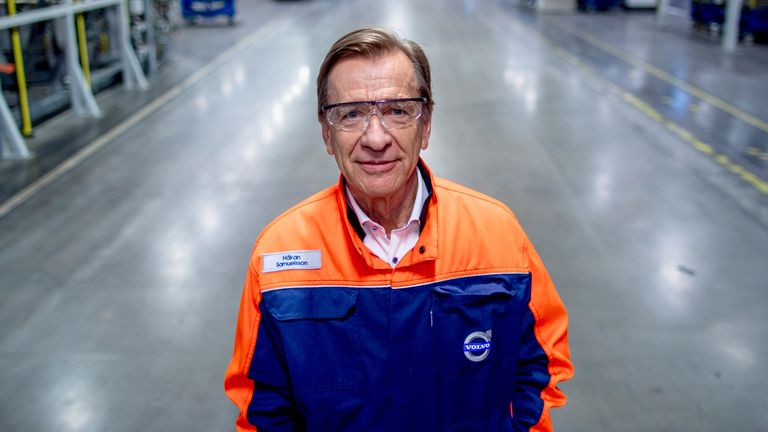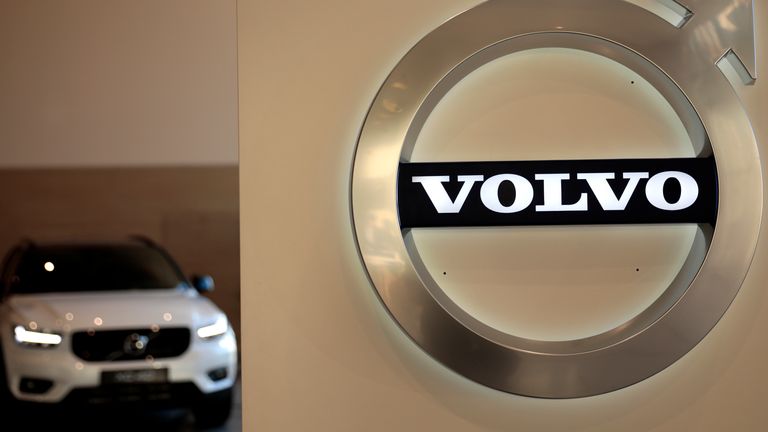Volvo motors towards $30bn IPO as loss-making years fade into rear view mirror
Even after many decades of such activity, it is still an emotive moment when a mainstay of British business – an ICI, or a Cadbury, for example – is acquired by a foreign buyer.
It is the same, though, in other countries.
Sweden went through a good deal of introspection when, towards the end of the 1990s, some of its best-known businesses either merged or were bought by foreign companies.
In 1997, for example, the Swedish bank Nordbanken merged with its Finnish rival Merita.
Shortly afterwards, Hagglunds, one of Sweden’s best-known defence contractors, was snapped up by the British company Alvis (both are now part of BAE Systems).
The following year, the Swedish forestry products giant Stora – by some measures the oldest corporation in the world – merged with Enso, a Finnish competitor.
A few months later, Swedish drugmaker Astra threw in its lot with Zeneca, the UK pharmacy giant.
But the biggest deal of all, in terms of the public anguish it created, came when, in January 1999, that most Swedish of companies, Volvo, agreed to sell its car-making division to the US giant Ford for $6.45bn.
The deal, which left Volvo as a specialist commercial vehicle manufacturer, brought to an end 72 years of independent history as a carmaker and, for many Swedes, it was not a proud moment in their nation’s history.
They watched on in pain as, for the next decade, Ford struggled to make a success of the business.
Ford simply had too many brands – the company also owned Jaguar and Land Rover at the time – and its management was distracted.
Volvo tumbled into the red towards the end of 2008 as the global financial crisis laid waste to US car sales. It lost $1.5bn during 2009.
By then, Ford had entered exclusive talks to sell the business to the Chinese carmaker Geely Automotive, which duly acquired the business for $2bn in 2010.
Now, though, the wheel has turned full circle.
Volvo Cars announced plans today to float on the Stockholm stock exchange.
It could, according to some analysts’ estimates, attract a price tag of $30bn.
It is fair to say that, at the very least, Geely has been a better owner of Volvo than anyone expected at the time of the sale.
Most people assumed that, with China having a reputation for building cars cheaply but with little experience of managing premium brands, Volvo would flounder.
Instead, it has thrived; 2019, the year before the pandemic, saw Volvo sell a more than 700,000 units worldwide, a record.
Much of that was achieved, over previous years, by opening the Chinese market to the brand.
Geely invested heavily in an overhaul of Volvo’s line-up of models, taking it upmarket, to a point where for the first time Volvo was able to compete meaningfully with established premium brands such Audi, BMW and Mercedes-Benz.
It remodelled the car’s engine and it recalibrated the platform on which the cars were built.
It was one of the earliest carmakers to invest in new technologies such as battery electric vehicles and autonomous vehicles.
The path it has set out will see it moving away from the internal combustion engine and towards fully electric or hybrid models more quickly than any other major car manufacturer.
It has also opened Volvo’s first factory in the US.
And, crucially, the company’s management – which remains Swedish – were given a good deal more autonomy in terms of how they ran the business.
That management team has also been given the freedom to think, for example, about selling cars to younger consumers via a subscription model.
By mid-2018, Hakan Samuelsson, Volvo’s chief executive, was talking about doubling sales by 2025, while an initial public offering (IPO) was also being discussed more openly.
Donald Trump’s trade war with China put paid to that – even though, making more than half of its sales in Europe, it was less exposed to Chinese and US tariffs on each other’s vehicles than other carmakers.
The IPO was abandoned in September 2018.
Things are now different.
Joe Biden is in the White House and, although his approach and policies towards China are pretty similar to those of Mr Trump, Volvo clearly feels conditions are safer for it to come to the stock market.
That is borne out by the company’s financial performance: Volvo is already back to pre-pandemic performance levels, reporting a profit in July of $1.52bn for the first six months of 2021, double the sum it achieved during the same period in 2019.
At the time, Volvo announced it had sold a rolling total of 775,000 cars during the previous 12 months, just missing the 800,000 target that it had set a decade earlier.
Mr Samuelsson told Reuters at the time: “The pandemic effect, when it comes to our business, we don’t see it anymore.
“All our employees have not been vaccinated yet, but sales and production are really back to where we were.”
There are still plenty of questions to be answered.
The first and most obvious of these is the valuation.
At $30bn, Volvo Cars would have a valuation three times that of Renault, even though the French carmaker sells far more vehicles.
The premium would reflect that Volvo is far further advanced towards electrification than many of its peers.
Since 2019, every car it has produced has either been a hybrid, or fully electric.
The valuation would also reflect the near 50% shareholding in Polestar, an all-electric vehicle maker than was spun off four years ago, which is being retained by Volvo Cars following Polestar’s impending flotation on the New York stock exchange.
The other big question is the number of shares that will be made available to outside investors and the size of the shareholding that Geely will retain.
The Chinese company is expected to remain the biggest single shareholder.
These questions will doubtless be answered in coming weeks.
For now, though, it can be said beyond dispute that an IPO would set the seal on what has been, by anyone’s standards, a most impressive turnaround.
